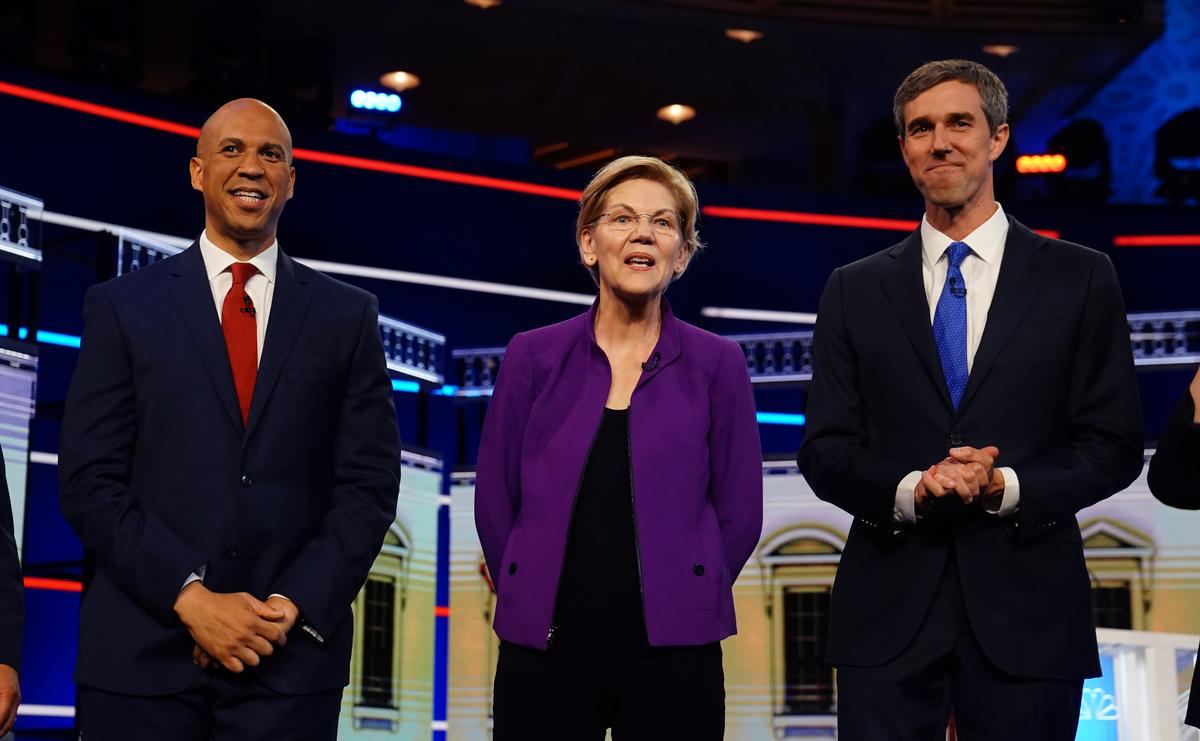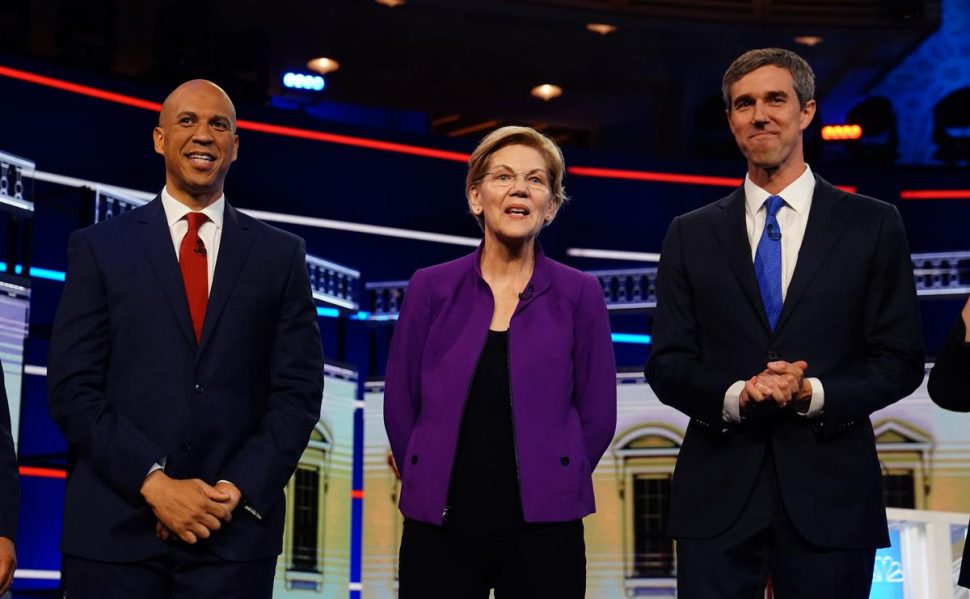WASHINGTON, (Reuters) – Ten Democrats took the stage in the first Democratic debate of the 2020 U.S. election campaign on Wednesday night, each trying to introduce themselves to millions of voters who will decide whether they should be president.
Some had good nights. Others struggled to stay afloat.
BIDEN
Former Vice President Joe Biden may be the Democratic front-runner and leading in nearly every opinion poll – but not once in the first debate did one of his rivals utter his name.
Biden, 76, was not in the room because he has his turn in a second debate on Thursday, but some pundits had predicted he would still loom large on Wednesday. They were wrong; he was practically forgotten.
Being a front-runner often means enduring the worst of the criticism from your opponents, but Biden escaped an onslaught, at least for one night.
Even opponents who had previously alluded to his age by calling for a “new generation” of leadership left him alone on Wednesday.
He may not be so lucky on Thursday when he joins nine other Democrats on the same Miami stage.

TRUMP
President Donald Trump took sustained criticism on several fronts – even if they rarely uttered the Republican’s name – offering a series of message tests for how to attack him as he seeks re-election in 2020.
Primary debates allow candidates to take their message on a test drive, and most took advantage of that opportunity on Wednesday.
Immigration dominated a segment of the debate, with the Democrats railing against Trump’s border policies. They also criticized him for “favoring the wealthy” in his economic policies and for pursing what some called “dangerous” tactics in his disputes with Iran.
There were a couple of humorous jabs, too.
“I don’t think we should conduct foreign policy in our bathrobe at 5 o’clock in the morning,” Senator Amy Klobuchar of Minnesota said, alluding to the president’s propensity to tweet from the White House residence early in the morning.
HEALTHCARE
One of the biggest differentiators among the candidates was their position on healthcare.
While Democrats have talked constantly for the past year about opposing Trump’s healthcare policies, the debate made obvious that the party is not in agreement about how it should move forward.
Klobuchar criticized Medicare for All, the universal healthcare system that candidates like U.S. Senator Elizabeth Warren of Massachusetts and U.S. Senator Bernie Sanders of Vermont have embraced.
“I am just simply concerned about kicking half of America off of their health insurance in four years, which is exactly what this bill says,” Klobuchar said.
Former Congressman John Delaney of Maryland also chastised some of his fellow Democrats for wanting to do away with private insurance.
“I mean, I think we should be the party that keeps what’s working and fixes what’s broken,” Delaney said.
Republicans believe the Medicare for All slogan will alienate moderate voters in 2020.
WARREN
For Warren, who has steadily climbed in the polls to secure a top-three position, the main goal on Wednesday was to do no harm.
She was helped by her rivals. Even when seemingly prompted by the moderators, they shied away from opportunities to criticize her directly.
Warren started off strong – fielding the first question of the debate and drawing robust applause as she railed about the current state of the economy.
In the first half hour, Warren dominated the debate and received more time than her rivals to respond to questions. But as the debate raged on, others got more time and she got fewer questions.
Viewership often drops off as debates drag on, meaning Warren probably had the advantage when higher numbers of people were watching.
“She talked about her outside-in strategy to bring big, structural change,” a Warren campaign aide said. “That’s the kind of big, grassroots campaign Democrats need to win, and the kind of persistent movement we need to get big things done after Elizabeth is sworn in.”
STRENGTHS AND STRUGGLES
For candidates who have struggled to build support in the polls, the debate offered the first big opportunity to try to break through. Having a good debate night can convert into donations and a polling surge.
Julian Castro, the former secretary of Housing and Urban Development, sought to break out during an exchange with fellow Texan and former Congressman Beto O’Rourke on immigration policy. Castro called for repealing a portion of the immigration law that allows the incarceration of immigrants.
“Some of us on this stage have called to end that section, to terminate it,” Castro said. “Some, like Congressman O’Rourke, have not. And I want to challenge all of the candidates to do that.”
It appeared to be a good exchange for Castro.
O’Rourke, by contrast, took the most criticism on social media for having a bad night. He struggled to get robust crowd responses and appeared uncertain at times in responding to questions.
After the debate, he spoke with reporters to attempt some damage control, saying Castro mischaracterized his immigration policy.
“He stayed positive and he stayed on message and he talked about the issues that are important to the American people,” said Marvin Pendarvis, a South Carolina state lawmaker and O’Rourke supporter. “I wouldn’t mischaracterize staying on message and staying positive with performing poorly.”

